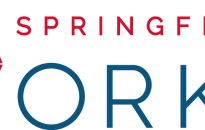Promise Uzodinma Iheanacho, is a Nigerian scholar with background as a coach at a Nigerian private university and recipient of the African Union Scholarship Award (2017) and Dissertation Proposal Development Research Award (2024); currently pursuing his doctorate in sport management in the United States. . In this interview, he discusses his journey from Nigeria to […]

Promise Uzodinma Iheanacho, is a Nigerian scholar with background as a coach at a Nigerian private university and recipient of the African Union Scholarship Award (2017) and Dissertation Proposal Development Research Award (2024); currently pursuing his doctorate in sport management in the United States. . In this interview, he discusses his journey from Nigeria to the United States, his pioneering research on gender and racial equity in collegiate eSports, and his vision for leveraging his expertise to foster collaboration between African and American sports organisations. Excerpts by JOHN SALAU:
Before your transition to pursuing a doctorate in sport management in the US; you were once an assistant coach: can you give us a brief background on your journey?
I began my academic and professional career in Nigeria, where I served as a sport coach at a reputable private university – Elizade University in Ilara-Mokin, Ondo State. During this time, I was deeply involved in the administrative aspects of sports and served in some committees, which fueled my interest in understanding how organizations function and adapt to change. Winning the Pan African University scholarship award sponsored by the African Union in October 2017 was a turning point, as it gave me the opportunity to pursue advanced studies in sport management. Transitioning to the US has been both challenging and rewarding, allowing me to expand my expertise and engage with a global academic community. Additionally, getting to the US and winning the Dissertation Proposal Development Research Award in April 2024 was a great achievement for me.
Winning the African Union scholarship award in 2017 must have been a pivotal moment in your career. How did it shape your academic aspirations and opportunities?
The African Union scholarship award was a transformative experience, although very competitive. It not only validated my efforts but also provided the financial and institutional support I needed to pursue a doctorate in sport management in the US. It provided me with access to high-quality education, research opportunities, and a network of scholars and professionals in the field. This award also instilled in me a greater sense of responsibility to give back to Africa by addressing the continent’s unique challenges in sports management.
Read also: How EStars launch in Nigeria will revolutionise education via Esports
Before leaving Nigeria, you focused your research on organisational change in sport. What inspired this area of study, and how did it prepare you for your current academic pursuits?
In Nigeria, I noticed how many sports organizations struggled with resistance to change. This observation inspired me to study organizational change, as I believed that sustainable growth and development in African sports depends on understanding and addressing these structural and cultural barriers. This foundation has been invaluable for my current research, as it provided insights into organizational dynamics, which I now apply in the context of eSports and DEI.
What motivated your recent research focus on Diversity, Equity, and Inclusion (DEI) in eSports?
My current research explores DEI in eSports, focusing on how collegiate eSports programs can foster greater gender and racial equity and inclusivity. ESports is a rapidly growing industry, but it remains dominated by certain demographics, leaving women and marginalized groups underrepresented. I saw an opportunity to contribute to this space by addressing these disparities through research, particularly as eSports intersects with issues of organizational change, an area I am passionate about.
How has studying and working in the US influenced your perspective on sports management compared to your experiences in Nigeria?
Studying in the US has broadened my perspective by exposing me to advanced research methods, diverse organizational models, and a global approach to sports management. While Nigeria’s sports industry has immense potential, it faces structural and resource-related challenges. In contrast, the US offers a more developed and systematic framework for sports management, which has inspired me to think about how these practices can be adapted to the African context.
The NASSM Conference presentation focused on promoting gender equity in collegiate eSports. Can you share some of the key findings?
First of all, this research won a NASSM award and in this study, we identified nine strategies for fostering inclusion across structural, cultural, and individual dimensions. Key strategies include fostering authentic inclusion and providing holistic support for participants. However, we also highlighted three significant barriers: recruitment and access challenges, cultural barriers, and resistance to change. Addressing these requires deliberate and sustained efforts from esports organizations.
What unique opportunities does eSports present in Nigeria, and what challenges must be addressed?
ESports in Nigeria is an emerging field with immense potential for youth engagement and skill development. ESports can harness the creativity and competitiveness of young Nigerians, bridging the gap between technology and traditional sports. However, challenges such as limited infrastructure, inadequate awareness, and a lack of funding from both the government and private sector may persist. Strategic investments in infrastructure, training facilities, and internet access are crucial.
What role can the Nigerian government and sports administrators play in supporting eSports development?
The government and sports bodies must first recognize esports as a legitimate sport, just like we do with traditional sports. Integrating esports into the national sports development agenda and creating pathways for grassroots participation will drive growth. Collaboration with international organizations can also foster best practices and global integration.
Finally, looking back on your journey, from coaching to becoming a scholar; what lessons have been the most valuable to you?
The most valuable lesson has been the importance of persistence and adaptability. Each stage of my journey has come with unique challenges, but staying focused on my long-term goals has allowed me to overcome them and grow both personally and professionally.














